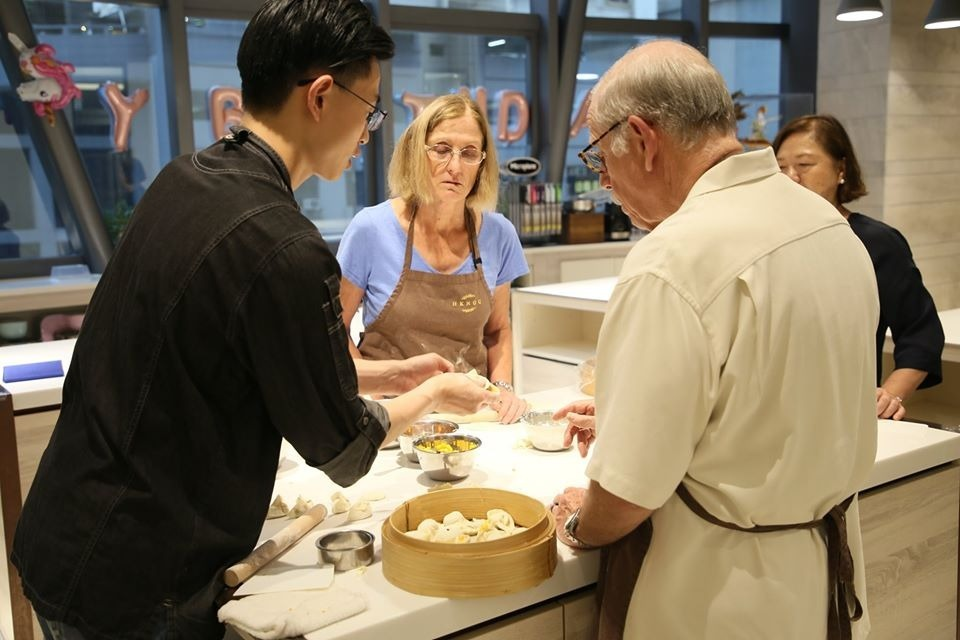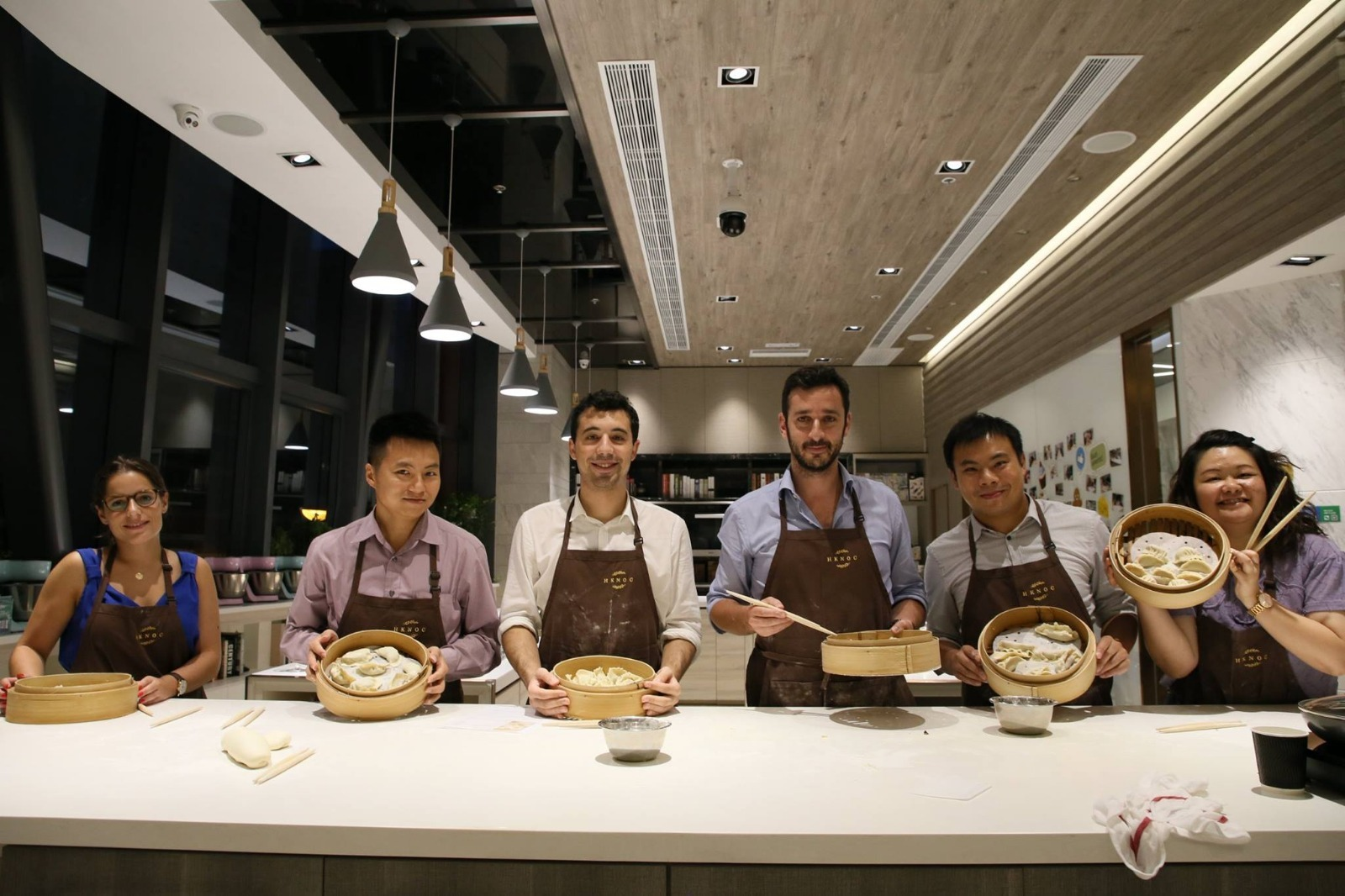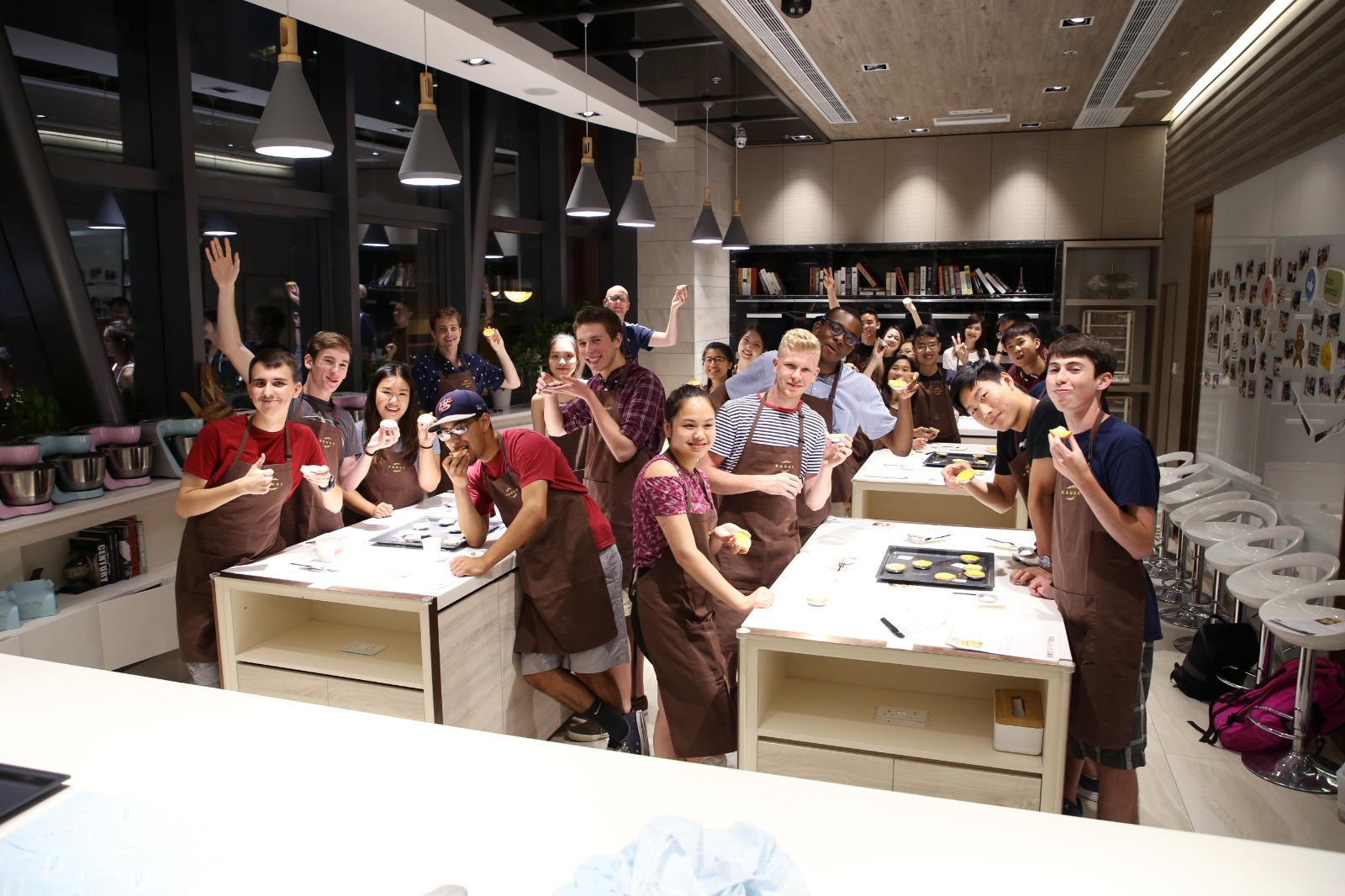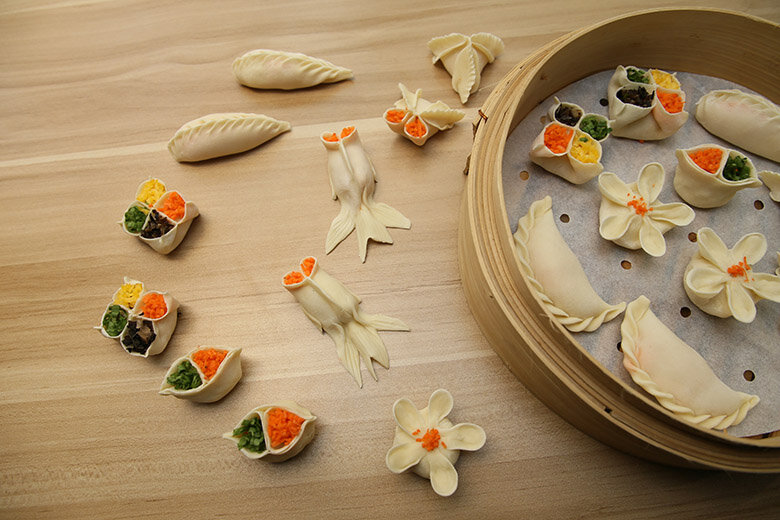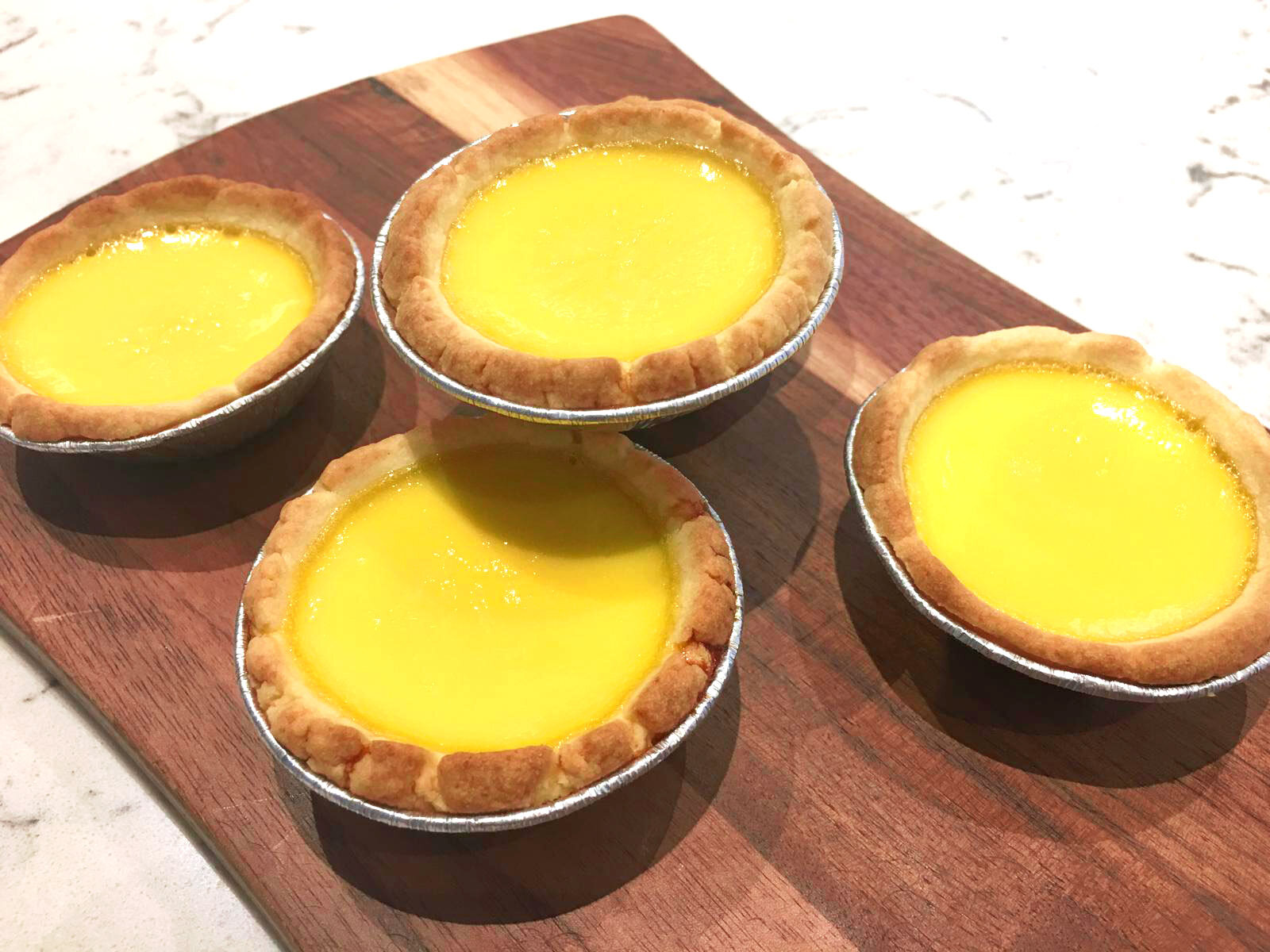In this 3.5-hour cooking class, participants will learn how to make dumplings and Hong Kong egg tarts.
Conducted in English, the “Dumpling Master” will demonstrate the process from making and rolling the dough, preparing and mixing the fillings, forming the dumplings and cooking them! Each participant will make approximately 10 dumplings and 5 egg tarts.
At the end of the class participants will sit down to dine together and exchange their experiences.
Duration: 3.5 hours
Level: Suitable for beginners
Options: Vegetarian options are available.
Overview:
Arrive at the centre, introduction, and orientation.
Chef Demonstration.
Food production and hands-on cooking.
Each participant will make approximately 10 dumplings and 5 egg tarts.
Tasting summary (About 25 minutes)
Location: North Point, Hong Kong Island
Logistics: Easily accessible by public transport and mini coach.
Pricing: To be confirmed based on group size. Approximately HK$1200 per person for group sizes over 10.
INFORMATION
Hello! Hong Kong acts as a booking agent for Hong Kong New Oriental Culinary Act and is solely responsible for the booking process. Hello! Hong Kong can not be held responsible or liable for anything which occurs on the day of the activity including but not limited to you missing your scheduled activity and accidents.
Once the venue booking has been confirmed, the paid deposit will not be refunded.
No video taking is allowed during the class demonstration, if found, we reserve the right to remove the video or may cause the class suspension.
If a participant has any food allergies, participants should make their own understanding of the course content and decide whether to enroll even if any allergic reaction has occurred, we will not be held responsible.
For all damages in cases of intentional and accidental harm, compensation is needed according to the cost.
Please be responsible to keep your personal belongings, Hong Kong New Oriental Culinary Art will not be held responsible for any lost or stolen items.
The copyright of all cooking class content is owned by Hong Kong New Oriental Culinary Art. Republication, redistribution, or unauthorized use of any content is strictly prohibited. Hong Kong New Oriental Culinary Art reserves the right to take legal action against the aforesaid acts.
Bad Weather Arrangement
If classes are canceled because Typhoon Signal No.8(or above) is hoisted or Black Rainstorm signal is issued, participants need to reschedule the class accordingly within three months.
The class will resume as normal 4 hours after Typhoon Warning Signal No. 8 (or above) has been lowered or Black Rainstorm Warning Signal has been canceled.
Hong Kong New Oriental Culinary Art has the right recording video or shooting pictures during classes or activities held. We have the right to make such content public or for internal review and promotional purposes.






